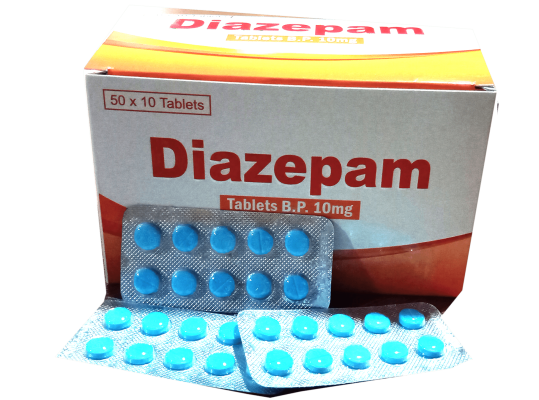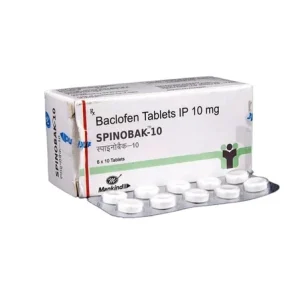Diazepam
$120.00 – $500.00
Diazepam
Anxiety disorders, spasticity related to upper motor neuron disorders, adjunct therapy for muscle spasms, preoperative anxiety relief, management of some patients with refractory epilepsy, adjunct in severe recurrent convulsive seizures, and status epilepticus are among the conditions for which the FDA has approved the benzodiazepine drug diazepam.
Diazepam
Anxiety disorders, spasticity related to upper motor neuron disorders, adjunct therapy for muscle spasms, preoperative anxiety relief, management of some patients with refractory epilepsy, adjunct in severe recurrent convulsive seizures, and status epilepticus are among the conditions for which the FDA has approved the benzodiazepine drug diazepam.
Diazepam is used off-label, or not approved by the FDA, for short-term therapy of spasticity in children with cerebral palsy and sedation in the intensive care unit.
For interprofessional team members utilizing diazepam for any of its intended indications, this exercise will emphasize the drug’s mechanism of action, adverse event profile, approved and off-label usage, dosage, pharmacodynamics, pharmacokinetics, monitoring, and pertinent interactions.
Uses:
- Anxiety Disorders: It is prescribed for the short-term relief of symptoms of anxiety disorders, including generalized anxiety disorder (GAD), social anxiety disorder, and panic disorder.
- Muscle Spasms: It is used to treat muscle spasms caused by conditions such as cerebral palsy, paraplegia, or tetanus.
- Seizures: It is used as an adjunctive treatment for certain types of seizures, including status epilepticus and febrile seizures.
- Alcohol Withdrawal: It may be administered during alcohol withdrawal to alleviate symptoms such as agitation, tremors, and hallucinations.
- Sedation: It is sometimes used for sedation before medical procedures or surgeries.
Side Effects:
- Common Side Effects: These may include drowsiness, dizziness, fatigue, muscle weakness, blurred vision, dry mouth, and constipation.
- Cognitive Effects: Diazepam can impair cognitive function and psychomotor performance, leading to difficulties in concentration, memory problems, and slowed reaction times.
- Respiratory Depression: High doses of diazepam or concurrent use with other central nervous system depressants (such as alcohol or opioids) can suppress respiratory function, potentially leading to respiratory depression or respiratory arrest.
- Dependency and Withdrawal: Long-term use of diazepam can lead to physical and psychological dependence, and abrupt discontinuation may result in withdrawal symptoms such as rebound anxiety, insomnia, tremors, and seizures.
- Paradoxical Reactions: Rarely, diazepam may cause paradoxical reactions, characterized by increased anxiety, agitation, hostility, or hallucinations.
Warnings:
- Dependency and Addiction: It has a high potential for abuse, dependency, and addiction, particularly when used for prolonged periods or in higher doses than prescribed. Misuse of this medication can lead to physical and psychological dependence.
- Withdrawal Syndrome: Abrupt discontinuation of diazepam after long-term use can lead to withdrawal syndrome, characterized by rebound symptoms, including anxiety, insomnia, irritability, tremors, and seizures. Tapering off the medication gradually under medical supervision is recommended to minimize withdrawal symptoms.
- Respiratory Depression: It can cause respiratory depression, especially in high doses or when combined with other central nervous system depressants such as alcohol or opioids. This can be life-threatening, particularly for individuals with respiratory disorders.
- Pregnancy and Breastfeeding: It should be used with caution during pregnancy, as it may pose risks to the fetus, including congenital abnormalities and neonatal withdrawal syndrome. It may also be excreted in breast milk, potentially affecting the nursing infant. The benefits and risks should be carefully weighed, and the medication should only be used under medical supervision during pregnancy and breastfeeding.
- Elderly and Debilitated Patients: It should be used with caution in elderly or debilitated patients, as they may be more sensitive to the effects of the medication, including sedation, cognitive impairment, and falls.
It’s essential to use diazepam exactly as prescribed by a healthcare professional and to follow their instructions closely. Do not exceed the prescribed dosage or duration of treatment without consulting your doctor. If you experience any concerning side effects or have questions about the medication, seek medical advice promptly. Additionally, do not stop taking diazepam abruptly without medical supervision, as it can lead to withdrawal symptoms.

| Amount | 100 pills, 200 pills, 30 pills, 60 pills |
|---|
Reviews
There are no reviews yet.
Related products
Pills
Pills
Hallucinogens
Hallucinogens
Pills
Pills
Pills
Pills













Be the first to review “Diazepam”